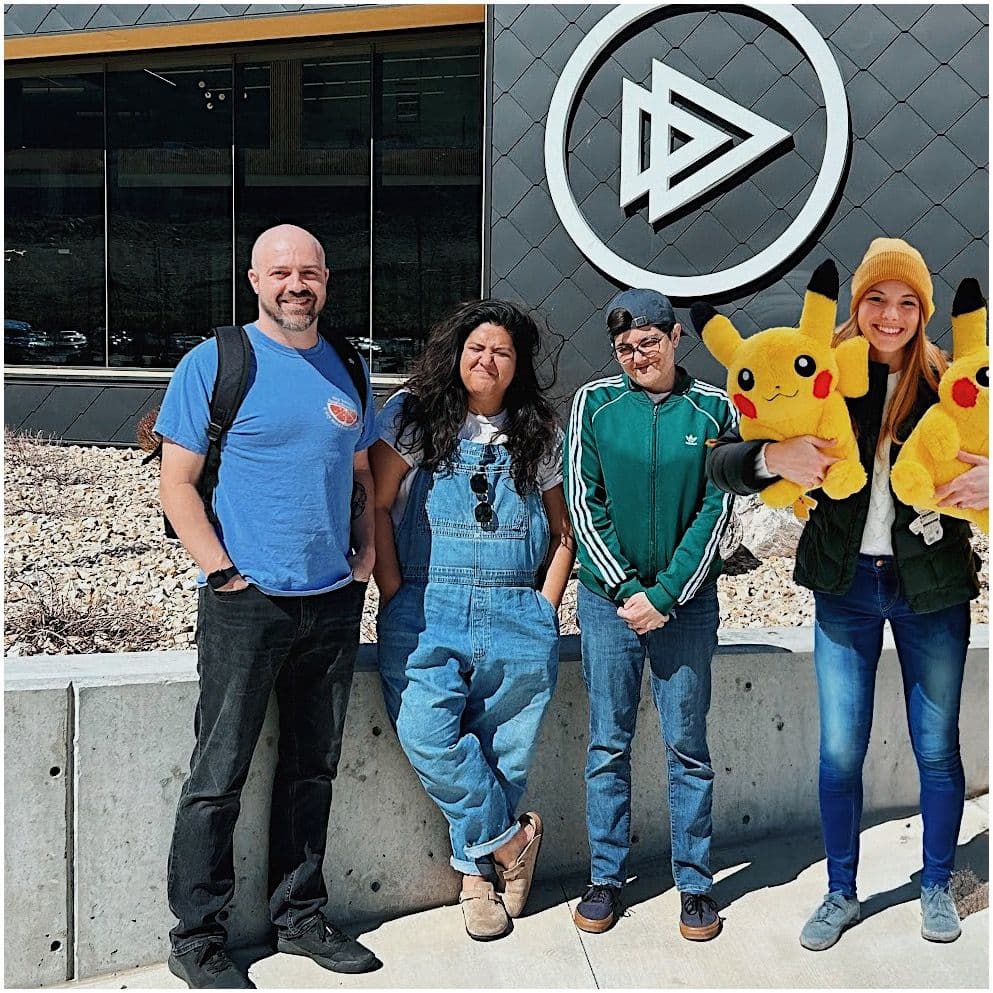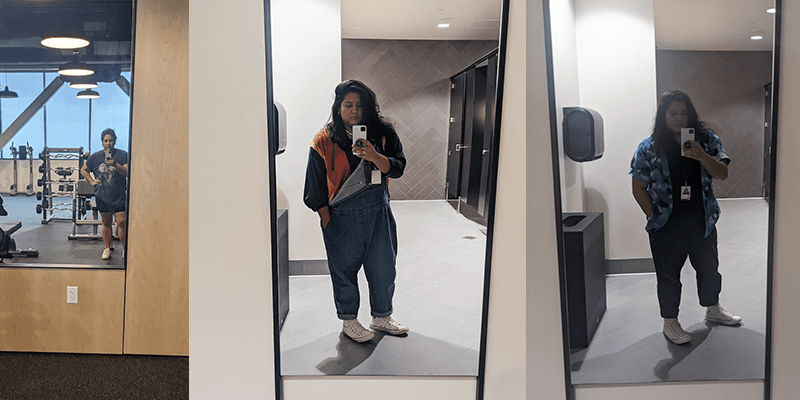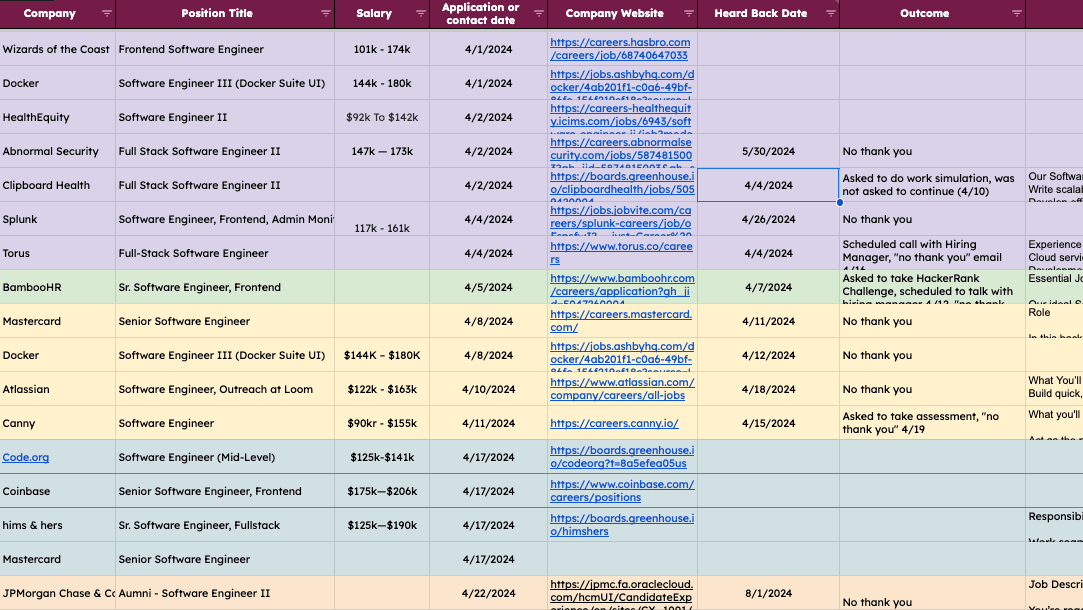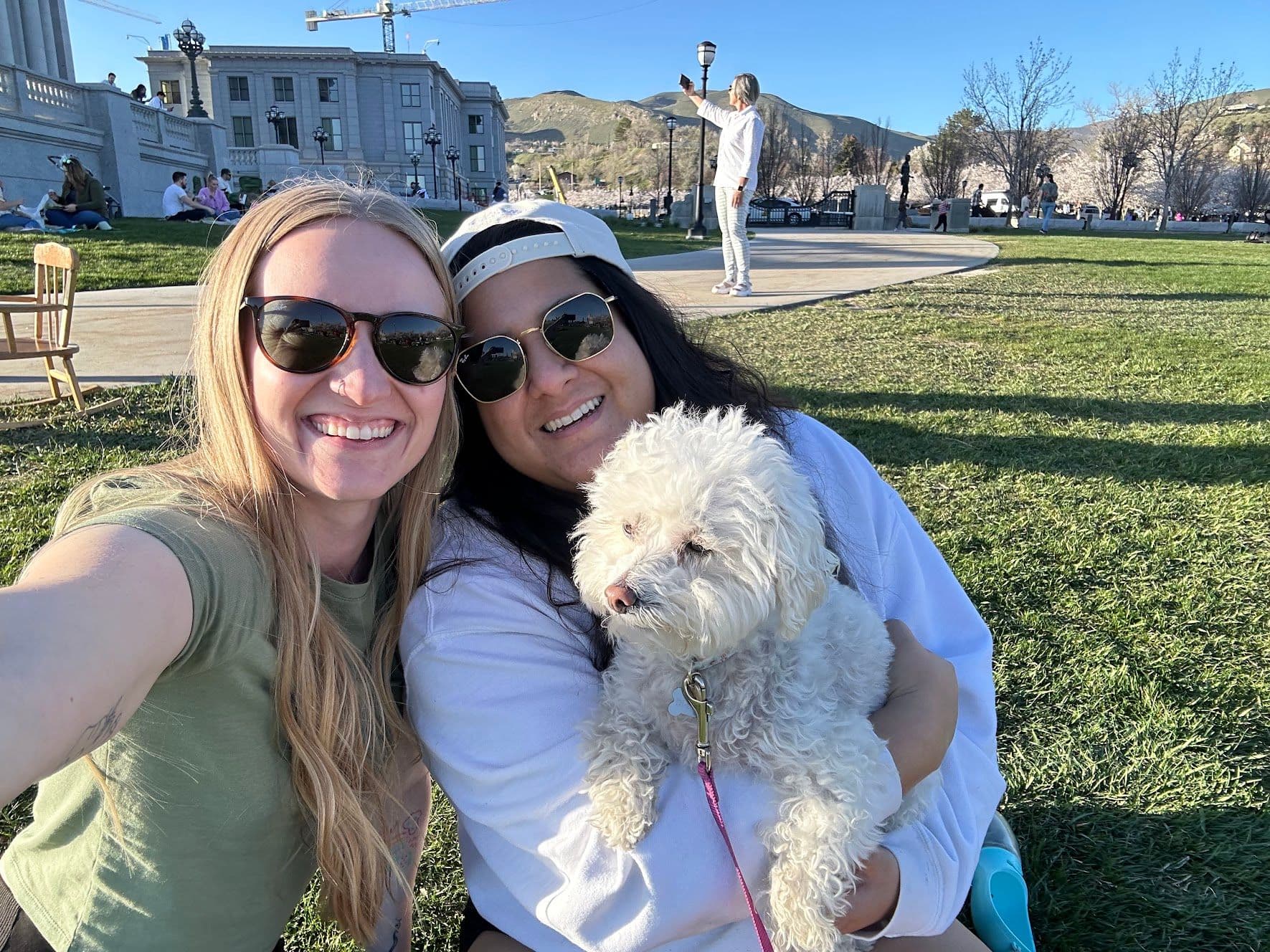10 Things I Learned From Being Laid Off: A Software Engineer's Journey

Sam Jeet
March 20, 2025

One year ago this week, I received news that would change the trajectory of my career and personal life: I was being laid off from Pluralsight along with my entire team. The company I had dreamed of working for, the place where I had proudly spent three years as a software engineer, was suddenly no longer my professional home.
What followed was a four-month (much shorter than a lot of people!) journey through the job market that involved sending out 100 resumes (yes, I kept count), numerous rejections, and ultimately landing at a 40-person startup through a referral from a former colleague. While I wouldn't wish the experience on anyone, the lessons I gained have been invaluable.
If you're reading this while navigating your own post-layoff journey, please know this: what you're feeling is valid, but it's also temporary. Let me share what I learned in hopes that it might make your path a little easier.

1. Your identity is bigger than your job title
My initial reaction to being laid off was shock, quickly followed by grief. Working with my therapist, I realized how much of my identity was wrapped up in being "a software engineer at Pluralsight." When that was suddenly taken away, I felt lost.
I learned that while our careers are important, they shouldn't define our entire sense of self. Companies will always prioritize profits over people when necessary. Building an identity that encompasses multiple aspects of who you are provides resilience when professional setbacks occur.

2. The job market fluctuates in ways beyond your control
What surprised me most was how different the job market was compared to when I found my first tech job four years earlier. Even with solid experience and referrals, I often couldn't get past initial screenings. I was competing against candidates from Meta, Google, and other tech giants who had also been laid off in mass reductions.
This taught me that timing and market conditions play a significant role in job searches—factors entirely outside my control. Understanding this helped me take rejections less personally.
3. Structure is essential during unemployment
Creating a routine was my lifeline. Every morning from 9-12 was designated "job time"—either applying for positions or upskilling. Afternoons were for house renovations, meeting friends, or other activities.
I recognize that my ability to maintain this structure came from privilege—having no childcare responsibilities and sufficient emergency savings to focus without immediate financial panic. For those balancing job searching with family care or financial stress, even small pockets of structure can help. Perhaps it's just one dedicated hour before everyone wakes up, or after bedtime.
Without this structure, it would have been easy to spiral into unproductive patterns or despair. Having dedicated time for job searching balanced with other fulfilling activities kept me "just above water" emotionally.
4. Your network is more valuable than you realize
The outpouring of support from my professional network was overwhelming. Colleagues offered referrals, reviewed my resume, and provided emotional support. Ultimately, it was a referral from a former Product Designer that led to my current position.
I realized that the relationships we build throughout our careers are not just pleasant workplace connections—they're potential lifelines during career transitions.
5. Tracking your applications reveals important patterns

I created a spreadsheet tracking each application: company, role, salary, application date, response date, and outcome. This system revealed surprising insights, like how many companies took months to respond (and how many never responded at all).
Setting a goal of five applications per week (more than the three required for unemployment benefits) helped me stay focused and organized. The data also helped me recognize patterns in which applications were generating responses.
6. Resume optimization is an imperfect science
Despite using AI tools, paid services, resume reviews, and even reaching out directly to hiring managers, I struggled to get my resume noticed. I tailored each application and wrote countless cover letters, yet the results remained inconsistent.
I learned that despite the countless "perfect resume" templates and advice, there's no guaranteed formula for getting past applicant tracking systems. Persistence and volume sometimes matter more than perfection.
7. Emotional resilience requires active maintenance

Making it through multiple interview rounds only to receive a rejection is emotionally devastating. After one particularly promising opportunity fell through, I experienced a crushing return to reality.
Working with a mental health professional weekly was invaluable for me, but I recognize this is a privilege not everyone has access to. Mental healthcare remains prohibitively expensive for many, even with insurance. For those without such resources, free alternatives include:
- Community support groups (in-person or online)
- Journaling to process emotions and track patterns
- Meditation apps with free tiers like Insight Timer
- Exercise, which has proven mental health benefits
- Public library resources on resilience and mental wellbeing
Whatever tools you have available, maintaining relationships with supportive people and engaging in activities that provide distraction and fulfillment are essential to bouncing back from these disappointments.
8. Professional setbacks can lead to personal growth
Getting laid off from my dream company forced me to question my values and priorities. Through this challenging process, I developed more confidence in myself as a professional independent of where I work.
I still have "dream companies" I'd love to work for, but I now understand that my value and impact depend more on what I bring to a role than on the company's name or reputation.
9. Career security is both within and beyond your control
The common advice that "career security depends entirely on you" places an unfair burden on individuals. I've learned it's more like a 50/50 split—your skills, network, and efforts matter greatly, but luck and timing play significant roles too.
Accepting that some elements are beyond my control actually reduced my stress and allowed me to focus on what I could influence. My professional identity now centers more on the people I work with and the community I build than on company prestige.
10. Openness dissolves shame
Initially, I felt ashamed about being laid off. However, when I started telling people, that shame dissipated. I discovered how common the experience is and how supportive people can be when given the chance.
Sharing my situation not only connected me with potential opportunities but also helped me process the experience emotionally rather than internalizing it as a personal failure.
Bonus #11: Gratitude remains even after goodbye

Ultimately, I am thankful for Pluralsight and my time there. They took a green software engineer and gave her an environment to grow and learn in. I met some of the best people (many of whom I'm still friends with today) and had the chance to lead projects and learn from the best minds around.
I took part in mentorship programs where I was mentored by amazing women. I had the privilege of mentoring a handful of interns who are now working as software engineers. Because of Pluralsight, I became involved with Tech-Moms, a local non-profit organization that introduces women to tech, which I'm still part of today.
While the ending wasn't what I'd hoped for, the experience and opportunities were invaluable. The skills I developed there—both technical and interpersonal—continue to serve me in my new role. Sometimes the most impactful chapters in our careers aren't defined by how they end, but by how they transform us while they last.
Final Thoughts
If you've recently been laid off, I want to leave you with this: YOU WILL BE OKAY. I acknowledge that my layoff experience was cushioned by privileges not everyone shares—emergency savings, no dependents, and access to mental healthcare. Your situation may include additional challenges, and that's okay. Adapt these lessons to your circumstances and be gentle with yourself if your journey takes longer or looks different than mine.
Take time to review your separation agreement if possible. Share your situation with others despite any initial embarrassment—you'll likely be met with support and understanding. Remember that layoffs are business decisions, not personal judgments, and focusing your energy on moving forward rather than dwelling on resentment will serve you better in the long run.
The four months between my layoff and new job were some of the most challenging of my professional life, but they taught me resilience, helped me clarify my priorities, and ultimately led me to a role that might be an even better fit. Your path forward may look different than you expected, but it can still lead somewhere wonderful.
Your layoff is an event in your career, not the definition of it. Better opportunities and renewed confidence await on the other side of this challenge.

by Sam Jeet
Sam Jeet is the creator of this site and is still mastering the art of third-person narrative. She enjoys content creation, though she acknowledges her consistency could benefit from improvement.
Comments (2)
Donna Cosentino
March 24, 2025I read this whole piece for two reasons: one is that I love the person you are and have always enjoyed your creative spirit; and two, is that I wanted to know what you had to say and how you said it. This is so well done Sam. Smart and positive with many helpful ways to move forward. Nice job girl.
Claudia Barnett
March 24, 2025Nicely done! I’m thankful for the road that took you to Tech Mom’s, you are an inspiration and your mentorship meant a lot to so many of us. Teaching with such dedication, witt, patience, even through the tediousness, you made it fun and safe. I appreciate you! I loved your classes!